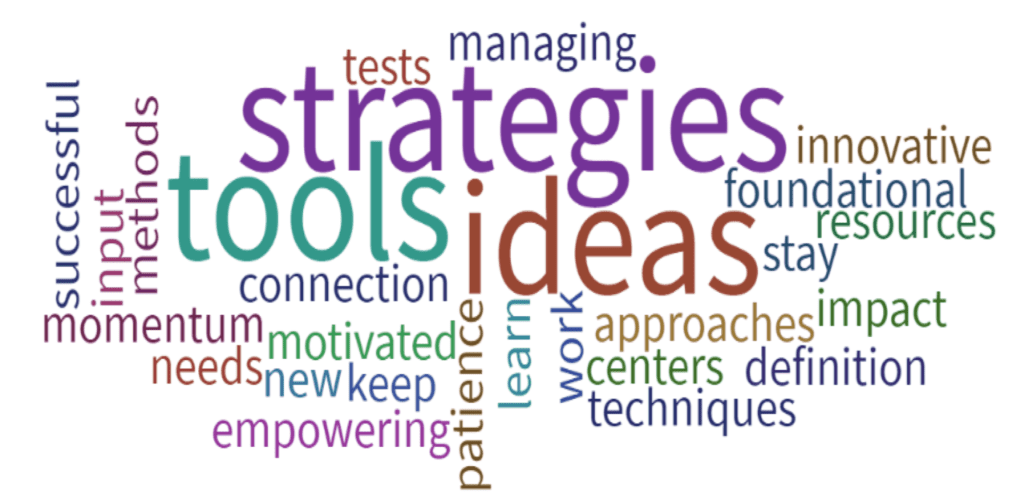Transforming Health Center Practices
Author: Christi Granstaff
In February, a group of Primary Care Association (PCA) leaders gathered in Dallas, Texas for two days of true connection and learning focused on identifying critical needs and evolving service delivery in health centers. This video, Dr Mike Evans: An Illustrated Look at Quality Improvement in Health Care, helped set the stage for our conversations.

Peer Learning provides a powerful mechanism for people working on similar issues across organizations to come together to share insights, troubleshoot challenges, and come up with innovative solutions.
Using polling technology, we asked each participant what they hoped to learn from their peers during the meeting. The word cloud represents their responses.
Over the next two days, we discussed far ranging issues including the Promise of Practice Transformation, Creating a Culture of Change, Exploring Lean Methodology, Understanding Human Centered Design, and Designing Learning Communities.
Kay Brewer from Wisconsin Primary Health Care Association provided an overview of Lean Methodology and Sonia Panigrahy with Community Health Center Association of New York State provided an overview of Human Centered Design. Both shared their PCA’s experience using these methodologies.
Participants discussed the need for adaptive leadership and shared their organizations’ initiatives designed to support health centers with practice transformation.
Some of the adaptive strategies that are being implemented include:
- Engaging health center leaders in discussions about how to approach complex technical and cultural problems in a way that supports staff with the changes and losses that accompany change.
- Offering a teamwork series
- CEOs bring team members and meet concurrently on hot topics, such as trauma-informed care and whole health center integration.
- The CEOs and their teams then meet separately. The teams are developing an action plan and next steps that address the hot topic issue.
- The team then has time to present their ideas to the CEO to get their buy-in. If successful, the CEO gives approval to the team to move ahead on the next steps and action plan
- Next steps identified by the teams are collected and a follow–up is conducted 3-6 months later to assess progress
- Leading learning collaboratives that produce tangible outcomes, such as a plan or tool, provide participants with a way to take action following the collaborative
- Developing core competencies for health center CEOs, clinical leaders, and CFOs.
- Facilitating peer to peer sharing
- Designing an executive leadership training program
- Producing a health center score card to provide a clear picture of the support and structure each health center needs. This will inform the PCA’s T/TA and assist them to better align their activities with identified needs
- Broadening committee membership to increase health center engagement
It’s clear that change will be the “new normal” for health centers for some time to come and that learning to both chart a new course and lead the transition will be critical leadership skills.